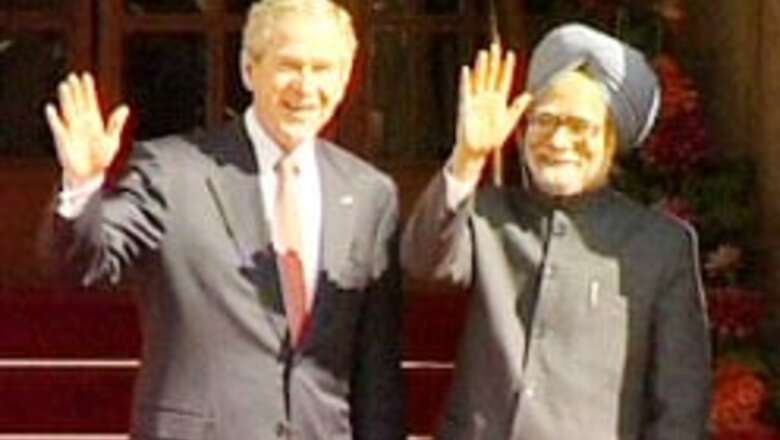
views
Washington: Democrats on Monday accused the Bush administration of seeking to strip protections against weapons proliferation from legislation that would enable a landmark US-India civilian nuclear cooperation deal to go forward.
As lawmakers took steps aimed at passing the legislation before the US Congress adjourns this week, critics urged them to retain hard-fought provisions that New Delhi rejects.
"This has always been a bad deal. It's a nuclear energy giveaway to India that strikes a harsh blow to efforts to stop the spread of nuclear weapons and technology," said Democratic Representative Edward Markey of Massachusetts, co-chair of the House of Representatives bipartisan task force on non-proliferation.
"Now President (George W) Bush is doing his best to make it worse," said Markey, whose objections were outlined in a joint letter with six other congressmen. The House and the Senate have adopted different bills that would change US law to allow India—which never signed the nuclear Non-proliferation Treaty—to buy American-made nuclear reactors and fuel for the first time in three decades.
Senate leaders on Monday appointed a group of lawmakers to negotiate a compromise with the House, which still must name its team. If a compromise is agreed, the House and Senate must pass the bill. If they don't act by Thursday's adjournment, the process starts anew in January when a new Congress takes office.
Rice’s warning
In a letter to congressional leaders made available to Reuters, Secretary of State Condoleezza Rice argued to eliminate or soften provisions in both bills. Bush and his top aides consider the deal the centrepiece of a new relationship with democratic India, a rising power.
The Senate bill bans the transfer to India of technology related to enrichment, reprocessing or heavy water production—weapons-related technologies the United States says it has no plans to provide—but Rice wants this out.
PAGE_BREAK
"It is not appropriate to single out India, which has been a responsible steward of its nuclear technology," Rice wrote. She also insisted on dropping a requirement that would condition nuclear cooperation on India "fully and actively participating in US and international efforts to dissuade, sanction and contain Iran for its nuclear program."
Rice said India twice joined Washington in voting against Iran in the International Atomic Energy Agency and is expected to continue cooperating.
But "this certification would be viewed by India as adding additional conditions" to July 2005 and March 2006 understandings setting terms of the nuclear deal, she said.
Rice also urged removal of a requirement that the IAEA approve and begin enforcing permanent "safeguards" inspections of India's civilian nuclear facilities before Congress votes on the final piece of deal-related legislation.
Daryl Kimball of the non-profit Arms Control Association, who made Rice's letter available, said the administration wants Congress to approve "an agreement for nuclear cooperation before Congress, or the IAEA, or the White House even know what safeguards India will agree to, or whether it will agree to them."
As for the Iran provision, Kimball said, "the issue is, does the White House have a problem asking an ally to comply with UN Security Council resolutions to deal with the most urgent proliferation problem we have today? Apparently the answer is yes. This is disgraceful."


















Comments
0 comment